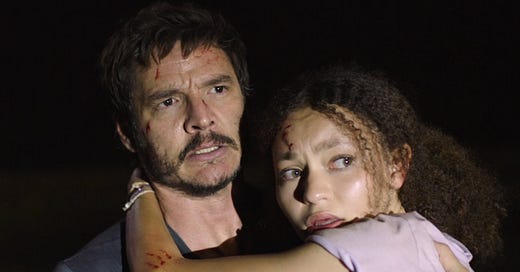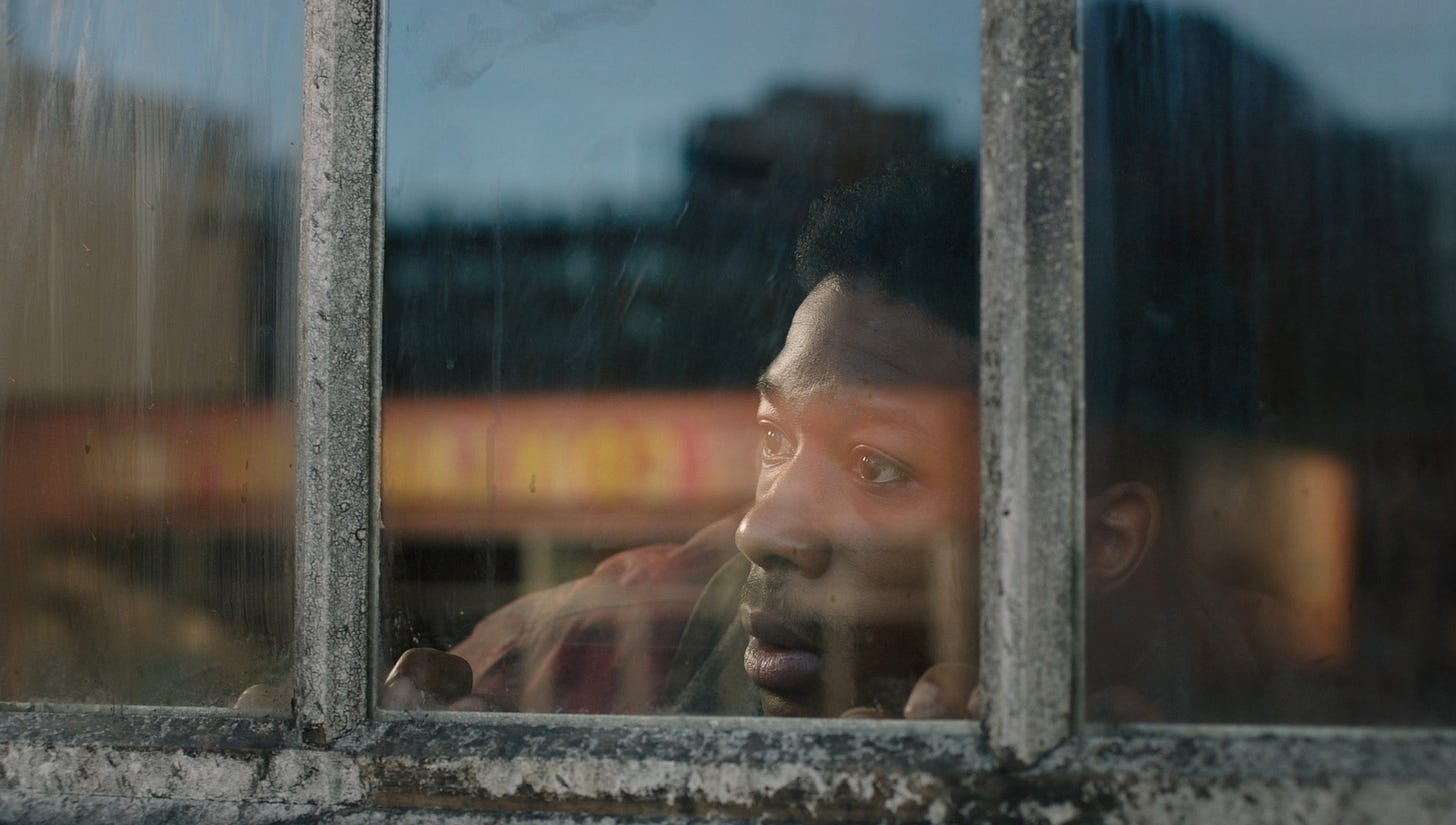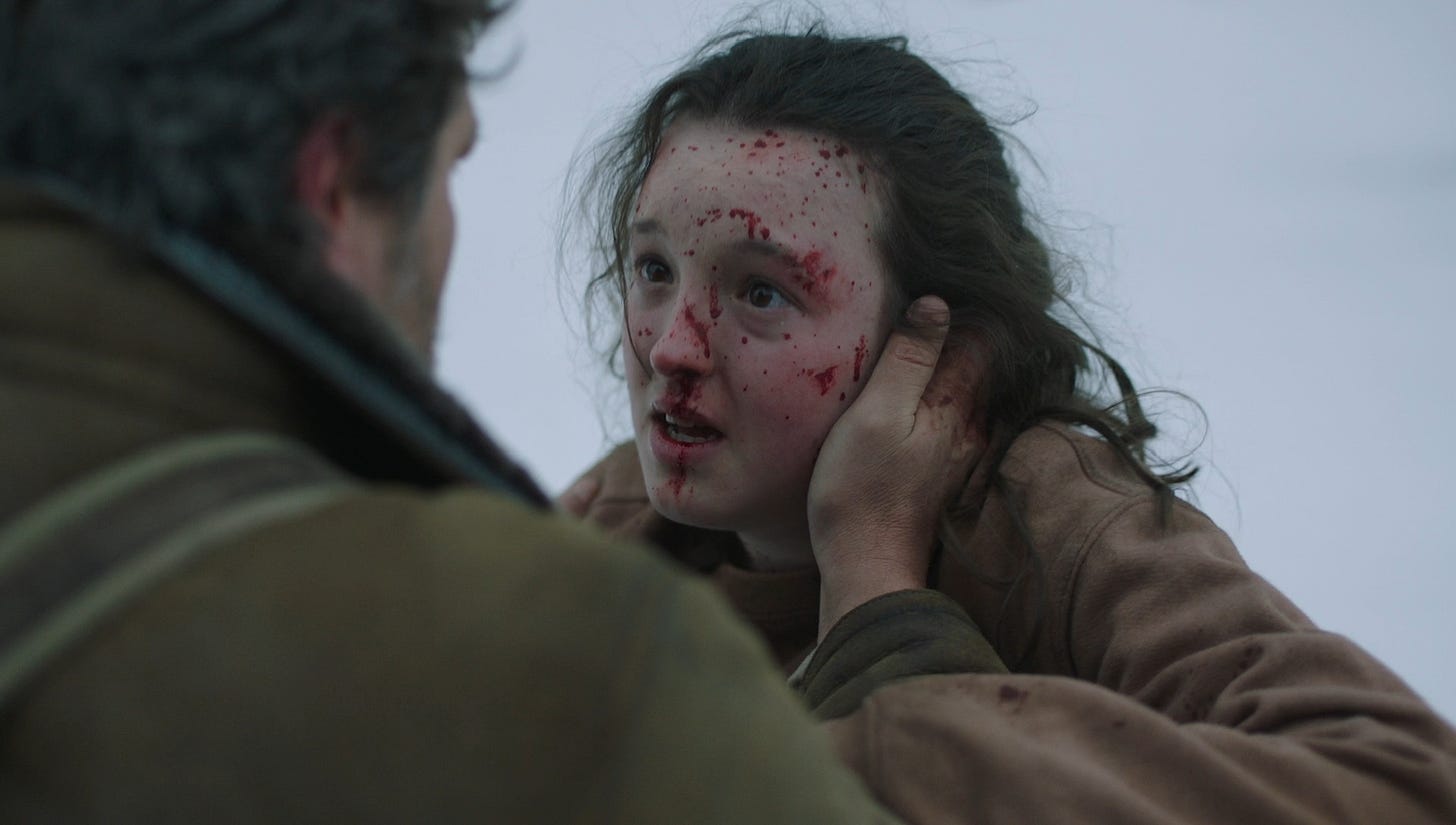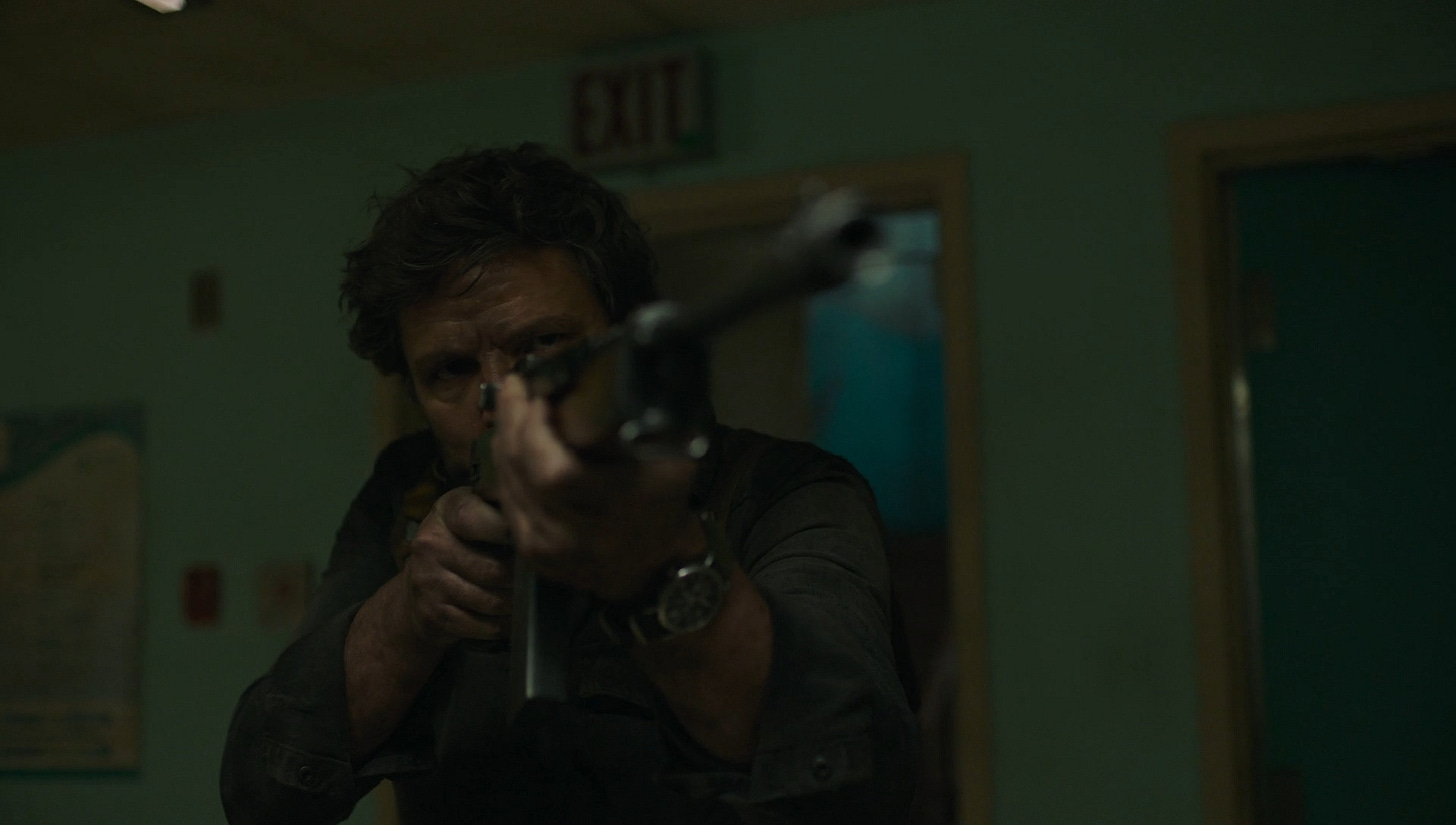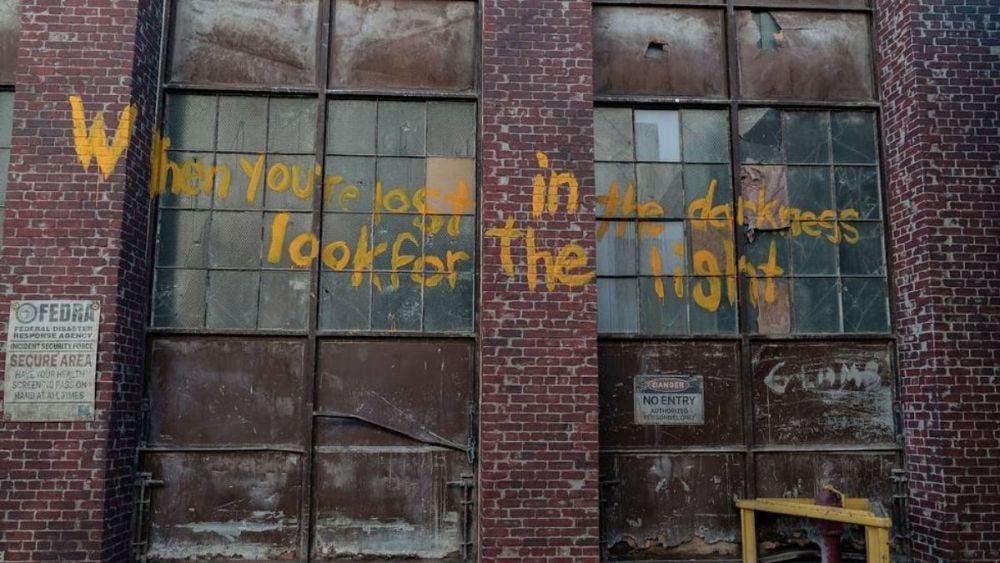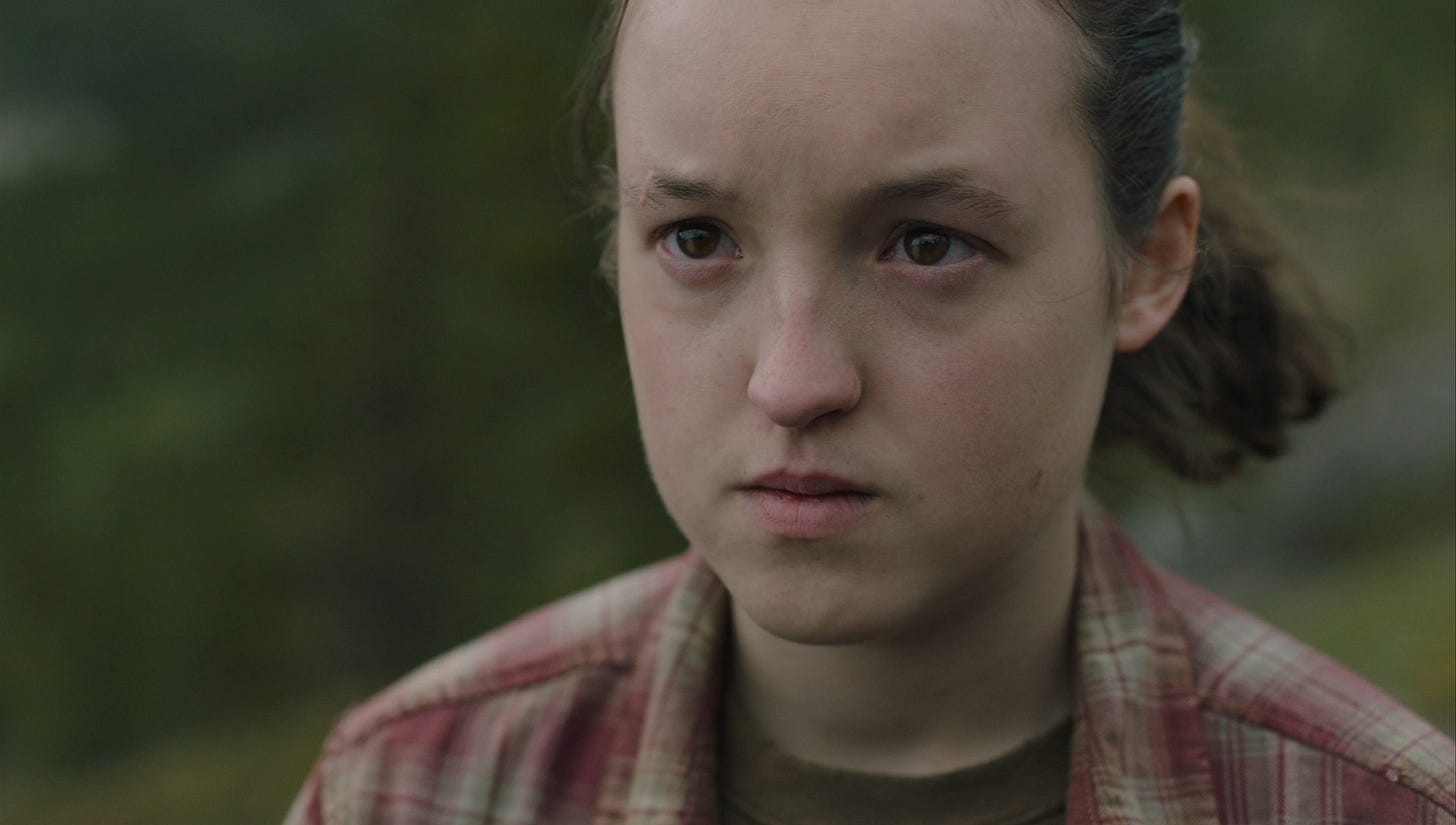The Last of Us: Morality and the Human Condition
A messy little write-up on the series and game.
Note: This assumes you’ve either played the game or watched The Last of Us S1 finale.
With HBO’s stellar adaptation having recently wrapped up its season finale, I feel compelled to devote a little time to convey my thoughts to an IP that has been a joy to experience in both its game and television mediums. I don’t think any other game (aside from its equally crushing and thought-provoking sequel) has challenged my expectations and given me something to ponder, even years after my playthrough. It’s a story of grief and loss but also one of hope and love told through the lens of two broken characters who ultimately find purpose in each other.
I could go on and on about these games and I may end up writing future posts on the topic. This particular write-up is intended to be a general overview of its themes with a slight emphasis on Joel and the choices he makes at the end. With that being said, let’s get sad.
endure and survive
"You Know, As Dangerous As Those Things Are, At Least They're Predictable. It's The Normal People That Scare Me."
- Bill
In the world of The Last of Us, no good deed goes unpunished. Kindness is met with cruelty and selfishness is rewarded. It’s a common theme in these apocalyptic settings where stability and status quo are thinly propped up like a house of cards. There is only a thin veil of the social order that separates us from the monsters and when those cards collapse, so too does our humanity.
Otherwise ‘good’ people are forced to do reprehensible things to survive and protect their own. This underlying theme of tribalism is ever-present and blurs the lines between right and wrong. Morality is determined by which end of the gun you’re on.
Joel has experienced this firsthand; there is no place for love and empathy here. And so he shut himself off from the world. Even after twenty years, his relationship with Tess was complicated and layered at best.
We see this man as a shell of his former self who endured in spite of it all. In fact, I believe it was spite that kept Joel going. The world took everything from Joel. His daughter, his livelihood, his morning coffee. It tries and tries again to bring him down and it’s all but succeeded. He’s on his last leg. Yet if there is one thing he can do, it’s to keep going — even if he can’t seem to find a reason why. It’s an act of defiance to this unjust world, to fight back in whatever way he can.
It is this form of self-preservation that provides us context for Ellie’s arrival, a reminder of his greatest failure but what will become his greatest purpose. The road to this is arduous and Joel is more than resistant. He will not and cannot suffer such pain again. Throughout their journey together, their experiences with Tess, Bill & Frank, Henry & Sam act as cautionary tales about what could happen if he were to let Ellie in.
And in this, the show provides an interesting deviation from the game.
Bill in the game refused to open up to Frank, resulting in Frank’s death and a resentful Bill. He serves as a dark reflection, a glimpse into what Joel could become should he continue down this road. Yet in the show, Bill and Frank’s story instead shifts to one of love in its purest form. Rather than a forewarning, it bodes as something aspire to. This is what can happen should you let her in.
And this begins Joel’s internal struggle. As time progresses, he’s forced to confront these longstanding fears of loss and grief. Slowly but surely, Ellie starts to break down his walls. Reflected in Bill and Frank’s own journey, we will see a Joel that no longer seeks just to survive, but to live. To find something worth fighting for. This love, and through it purpose, can be beautiful, but also dangerous.
How far are you willing to go to protect the ones you love?
“He who has a Why to live for can bear almost any How.”
- Friedrich Nietzche
there are no heroes
A hero acts selflessly and purposefully for the greater good, even when circumstances become increasingly difficult to do so. This self-sacrifice is inherent, almost demanded even, from the hero. But is this world worth saving? From the streets of a desolate Boston to a violent and apathetic Kansas City, we see the world of The Last of Us is capable of dark, harrowing cruelty. It is selfish and cynical. Characters will ultimately do what is best for them.
Henry and Sam’s story furthers this character development in Joel as he wrestles with his trauma. Their relationship parallels our protagonists and here we see a man that is willing to do anything to save his own brother.
Something Craig Mazin, co-writer and producer of the show, brings up are the lengths people will go to for love. Henry’s decision to give up Kathleen’s brother, the kind and caring resistance leader, to FEDRA is a decision steeped in unconditional love for his own kin. One could argue the utilitarian benefits of overthrowing the ‘bad’ fascist government with the ‘good’ rebel leader over a mere kid’s life. But people here don’t do things for the greater good.
Mine is more important than Yours.
Such conviction is only natural, bred and perpetuated by the harsh conditions of this world. How can empathy even attempt to exist outside of one’s tribe?
Is Henry the bad guy because he did a ‘bad guy’ thing? Is Kathleen good for overthrowing a fascist FEDRA government, known to be monsters and savages? This moral ambiguity persists as the notion of dividing up people as either Good or Bad oversimplifies the issue. There are no heroes or villains, just people.
and you were my purpose
The chaos of the human condition spares no one. It is visceral and unforgiving. There is no inherent fanfare nor glory in suffering here.
Time and time again is this shown. Sarah’s death was as indiscriminate as it was quick, as meaningless and unassuming as the mud she died on. Tess, Henry, Sam. Their sudden deaths reemphasize the cruel, unrelenting nature of the world they live in.
Despite death and its nihilistic undertone, it ultimately rests on those that live on to find purpose and meaning (a major theme to be explored in Part II hehe). This is what shapes both Joel and Ellie’s resolve in Salt Lake City.
Joel, finally having rekindled his purpose through Ellie, is able to come to terms with his past, accepting Sarah’s death and embraces Ellie as his daughter. This Joel, as we will soon see, is a Joel that will do anything to protect his child.
Ellie on the other hand, traumatized by the events of Silver Lake, seeks meaning to her suffering.
“After all we’ve been through..Everything I’ve done…it can’t be for nothing.”
- Ellie
Throughout the story, she’s been heralded as the hero, the one who would save humanity. The Ellie that arrives in Salt Lake City is far from the Ellie that first began the journey in Boston. This Ellie has seen the worst humanity has to offer — the Infected were responsible for ending the world but they pale in comparison to the horrors and atrocities of Man.
Burdened with unimaginable survivor’s guilt, Ellie ties her self-worth to her immunity.
Tess, Sam, Riley.
To see each one of them die from a single bite, a bite she herself survives, this guilt is her motivation. They can’t have died for nothing.
it’s joelin’ time
This brings us to the hospital.
As we see a Joel slowly realize the implications of Ellie’s surgery, we know just as well as he does in that moment: Ellie is the only one that matters.
Refusing the trauma of losing another daughter ever again, Joel’s rampage in the hospital is cold and without remorse. Somber strings fill the muffled air with each step he takes, punctuated only by crisp staccatos of bullet casings falling to the floor. He no longer sees these Fireflies as people, he’s dissociated past that. Right now, they’re nothing more than obstacles.
“That’s why men like you and me are here. We have a job to do. And God help any motherfuckers that stand in our way.”
- Bill
This isn’t a glorified action scene. This isn’t the hero’s journey; there are no heroes after all, just people. We’re meant to question Joel’s decision. What is one life compared to a cure for humanity? This is the trolley problem The Last of Us presents.
Is one person worth saving over millions, if that one person is someone you love?
What makes this dilemma so engaging is its reflection of our own humanity and values. Marlene’s decision to sacrifice Ellie for the greater good is a utilitarian one. In fact, I’d say it’s the harder choice between the two. Joel sees no other path before him — he has to save Ellie.
She is humanity personified. Within her lies hope and purity that can’t be extinguished, despite all she’s been through. She represents the light, even when all else is dark. This darkness has long been a byproduct of humanity’s failures, perpetuated by Joel and his generation. Hopelessness lingered in the air for twenty, grueling years.
But through Ellie, Joel finds purpose and the light in his life once more. And when he is told to give that up, for that light to be extinguished in hopes of saving a world that has done nothing but take and take and take from him…
It’s the easiest choice he’s ever made.
It’s important to note that the feasibility of the cure is never at question here. I doubt Joel’s decision was rooted in the scientific possibility of the cure or his skepticism of Marlene’s ability to manage the supply chain logistics of distributing a vaccine.
Any attempt to discredit the cure absolves and detracts from the ambivalence in his actions. It didn’t matter whether the cure would have worked or not, all that mattered was that Joel believed it would. Trying to justify his actions as either right or wrong misses the point entirely.
It’s not the possibility of the cure that bears understanding, but the basis of his motivations. What Joel does is undeniably selfish, but it’s also human. You may disagree with Joel, you may have done the same, the point lies in understanding he’s not a hero or a villain, just a father.
swear to me
Upon waking up and hearing Joel’s recounting of the events, Ellie is visibly upset and disappointed. This was her chance for her life to mean something. The burden she carries is immeasurable, the weight of the world rested on her shoulders, the deaths of her friends…had to have meant something.
And so Joel lies to her, another decision any parent would do to protect their child. Neither right nor wrong, but ultimately human. He is aware of her survivor’s guilt and the trauma she faces. But by lying to her, she is also unable to move on. Stuck in limbo, she loses her purpose.
“Okay.”
It’s poignant and uncertain. The beauty of it lies in its openness for interpretation. To me, she sees through the lie but chooses to believe it for the alternative is much more terrifying. To know that Joel took her one purpose away from her, to know that he murdered all those Fireflies for her. It is from this point their relationship, having been slowly built up on trust, will begin to change.
Be careful who you put your faith in. The only people who can betray us, are the ones we trust.
- Maria
final thoughts
This ended up being longer than I thought it would but I’m glad to get it out. The Last of Us both Part I and Part II remain my favorite games to this day and I’m grateful more people now have the chance to experience the story for themselves. It challenges you and it demands an open mind, empathy, and a willingness to see these characters tell their story.
I enjoyed writing this and as I continue to shape this Substack, I’ll be playing around with different topics and posts so thanks for bearing with me in the meantime and I appreciate you for reading thus far. ‘Til the next one!
Take Care,
Kensey

